What is a Herniated Disc?
Herniated discs develop when one of the cushions (disks) that sit between the individual bones (vertebrae) that stack together make up the spine. A spinal disk is made up of a jelly-like (nucleus) encased in a tougher outer called (annulus). The hernia occurs when the nucleus breaks through a tear in the annulus. A hernia can occur at any part of the spine. Depending on location, it can cause weakness, pain, or numbness in the extremities. Not every disk needs intervention. If needed, treatment includes PT, medication, and possibly surgery. For any questions or concerns about your situation or procedure, please consult our experienced Spinal Surgeon NJ, Dr. Han Jo Kim for more information.
Anatomy
The spine is made up of 24 bones called vertebrae. These bones are stacked on top of each other connecting to create a canal protecting the spinal cord. The lumbar spine is the 5 vertebrae that make up your lower back.
Spinal cord and nerves– these are the “electrical cables” that carry messages to muscles and the brain. These “cables” travel through the spinal canal.
Intervertebral disks– in between the vertebrae, are “shock absorbers” for when you walk or run.
- Annulus fibrosus- is the tough, flexible outer ring of the disc.
- Nucleus pulposus – is the jelly-like center of the disc.
Symptoms
The majority of hernias occur in the lower back or neck. The signs and symptoms that will manifest depend on where the disk is sitting and if it is pressing on a nerve. Usually, one side of the body is affected:
- Tingling and numbness- herniated discs can cause tingling in the body part of the affected nerve.
- Weakness- muscles become weakened, which can affect balance and your ability to lift and hold things.
- Leg or arm pain- if the hernia is in your neck, the pain is typically in the shoulder and arm. If the hernia is in the lower back, the pain is usually felt in your thigh, calf, and buttocks.
- Poor posture
- Slow reflexes
- Balance issues
- Difficulty getting up from a seated position
Risk Factors
Factors that our Spinal Surgeon NJ suggests you should be mindful of as they increase the risk of a hernia:
- Tobacco smoking- smoking deprives the disk of oxygen making it easily susceptible to breaking down.
- Weight- excess body weight puts pressure on the discs, especially in the lower back.
- Occupation- physically demanding jobs greatly increase the risk of a herniated disc. Bending, lifting, pushing, pulling repetitively puts you at an increased risk.
Prevention
- Exercise- strengthening your trunk muscles provides support and stability to the spine.
- Quit smoking- avoid smoking tobacco.
- Maintain a healthy weight- the more weight you carry the more pressure on the spine.
- Good posture- maintain a straight and aligned posture especially if seated for a long period. Lift with your legs ,not your back. Both of these tips reduce pressure on the spine.
Causes
Hernias are most often the result of disk degeneration. Disc degeneration is gradual, age-related wear and tear of the disc. As we get older, our discs become less flexible and more susceptible to tearing even to something like a minor twist or strain. Most of the time it is difficult to pinpoint the exact cause of a herniated disc. Sometimes it can also be using your back to lift heavy objects instead of your legs. A fall or direct impact is rarely the cause.
Complications
Cauda Equina is the group of long nerve roots that continue through the spinal canal past your waist. Although rare, herniation can compress all the nerves in the spinal canal including all of the cauda equina nerves. You should get emergency medical attention if you’re experiencing any of the following:
- Bowel or bladder dysfunction- symptoms include difficulty urinating with a full bladder.
- Saddle anesthesia- symptoms include a loss of sensation in the inner thighs, buttocks, and back of legs areas.
- Exacerbated symptoms- worsening pain, numbness and weakness.
Contact Our Spinal Surgeon NJ Today!
Your doctor will diagnose a herniated disk with a physical exam and, sometimes, imaging tests. With treatment, most people recover. Treatments include rest, pain and anti-inflammatory medicines, physical therapy, and sometimes surgery. If you opt for surgery, no one is better than Han Jo Kim, MD. Dr. Kim is a master spinal surgeon who offers various procedural options. If all other options are exercised and surgery is needed, contact our experienced Spinal Surgeon NJ, Dr. Han Jo Kim, so that he can make you whole again.


